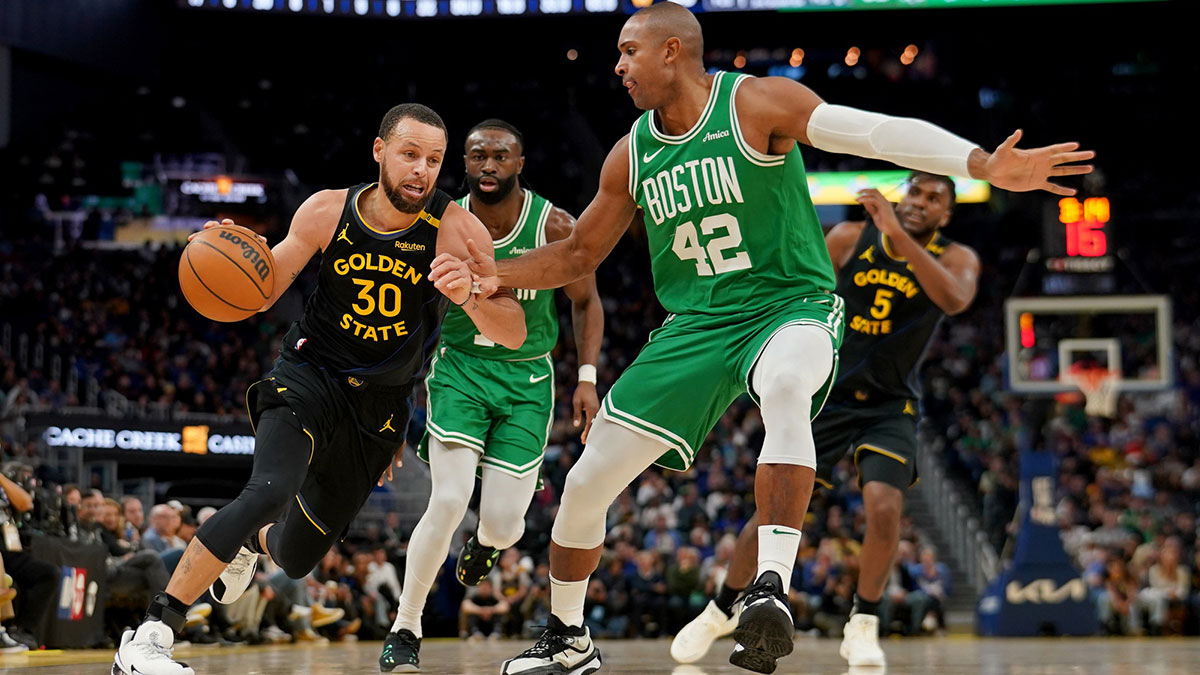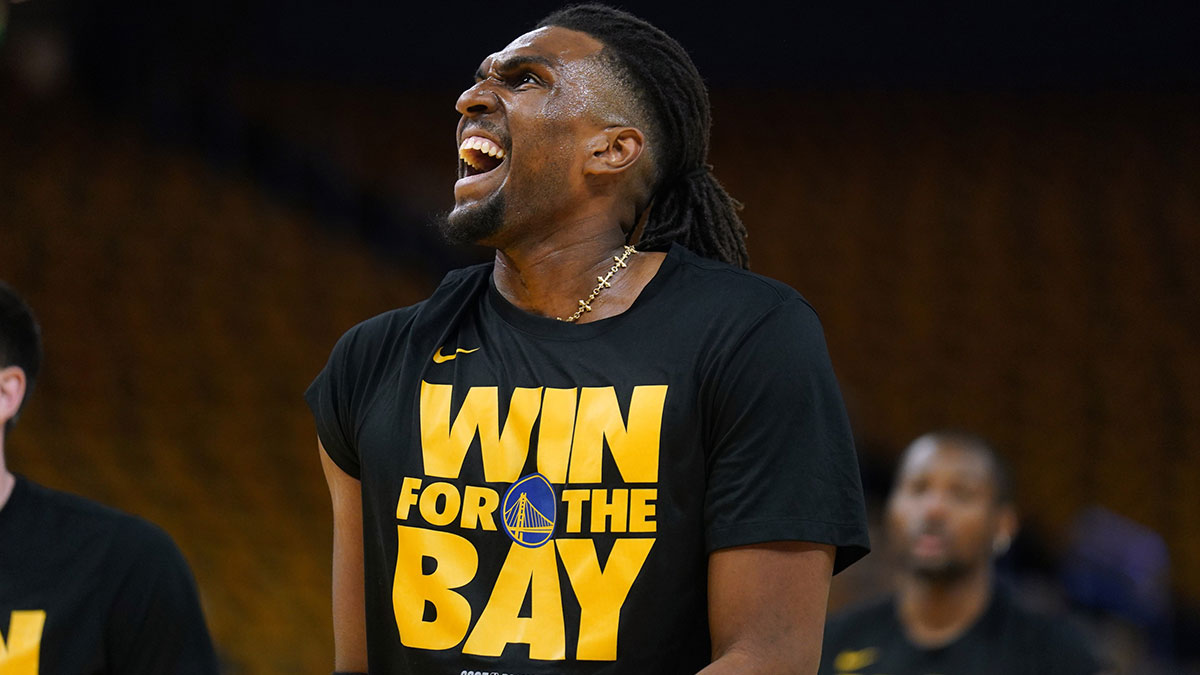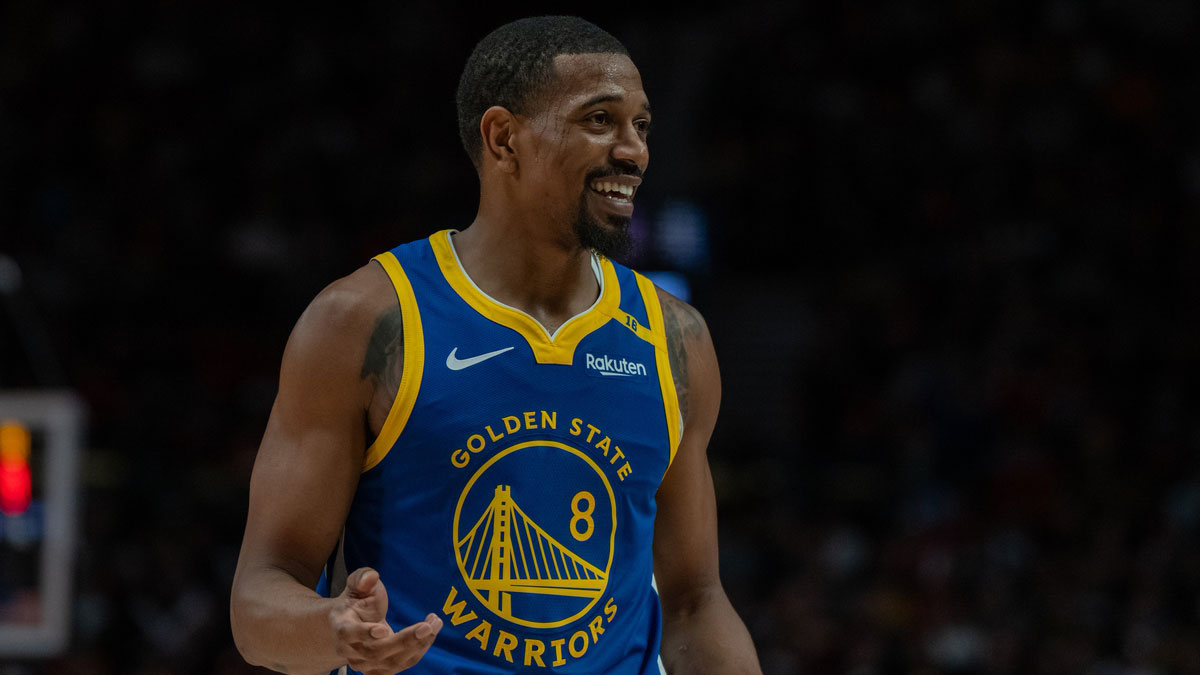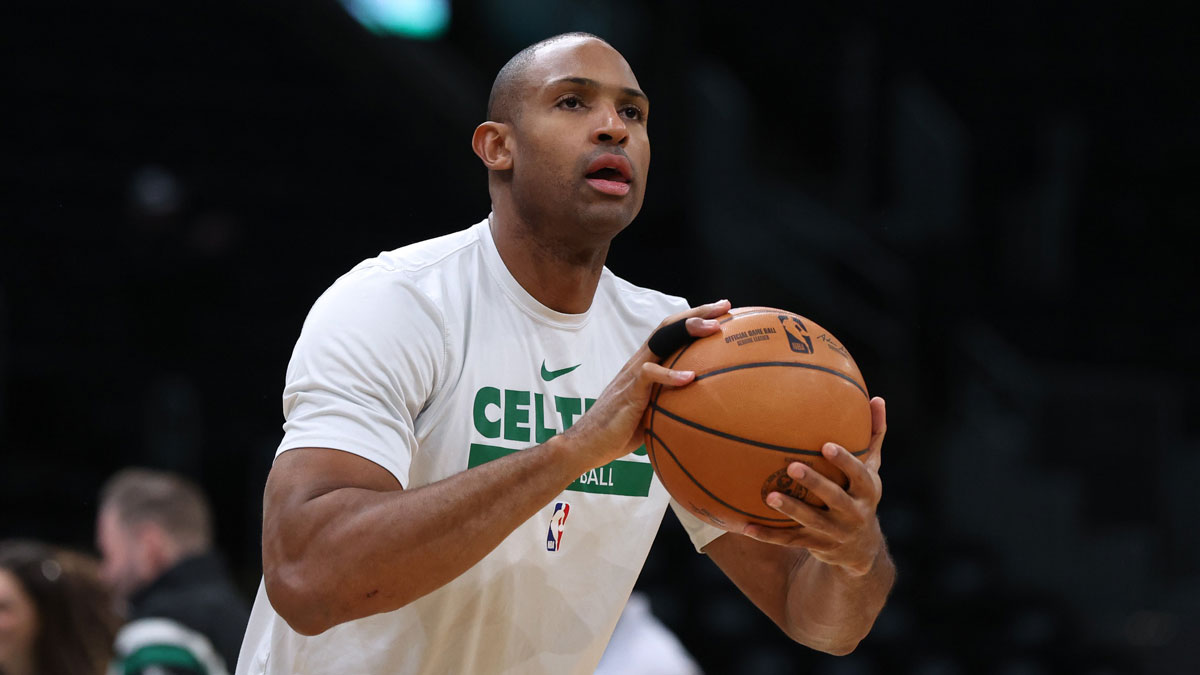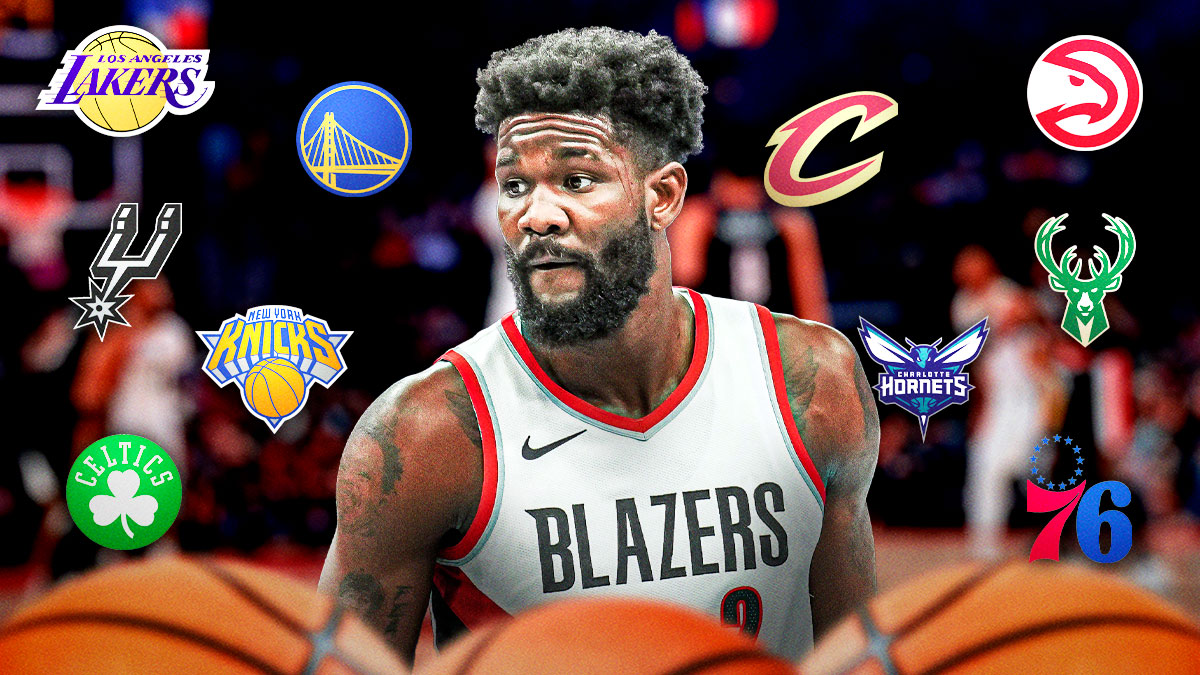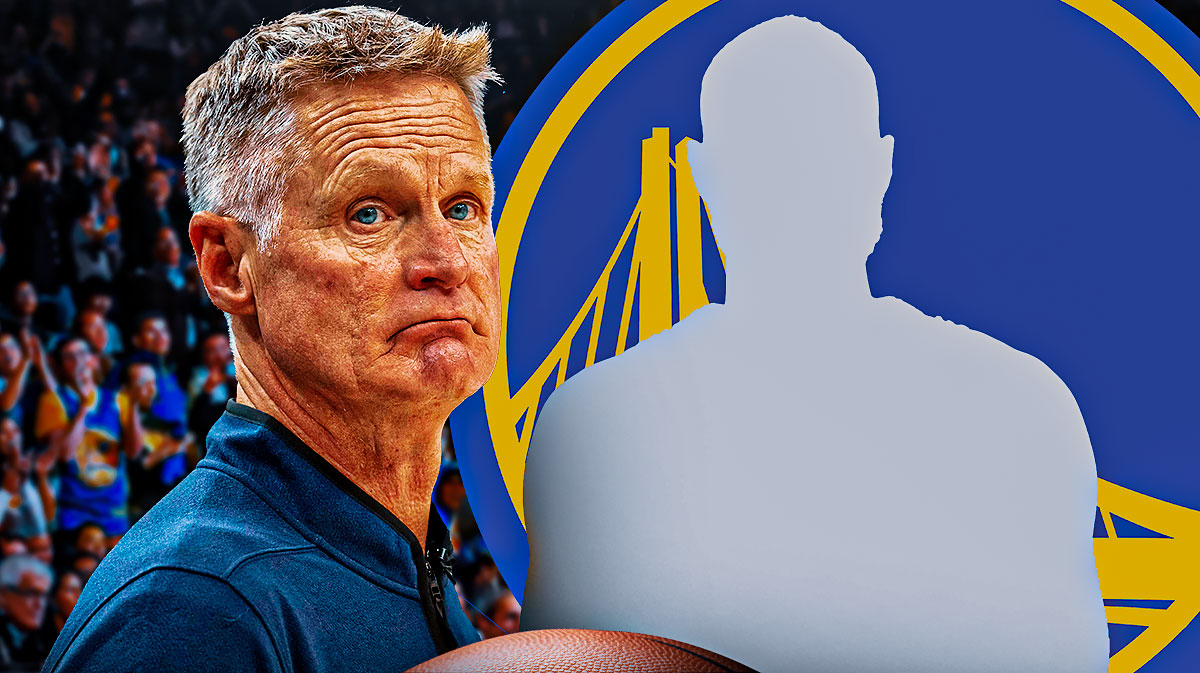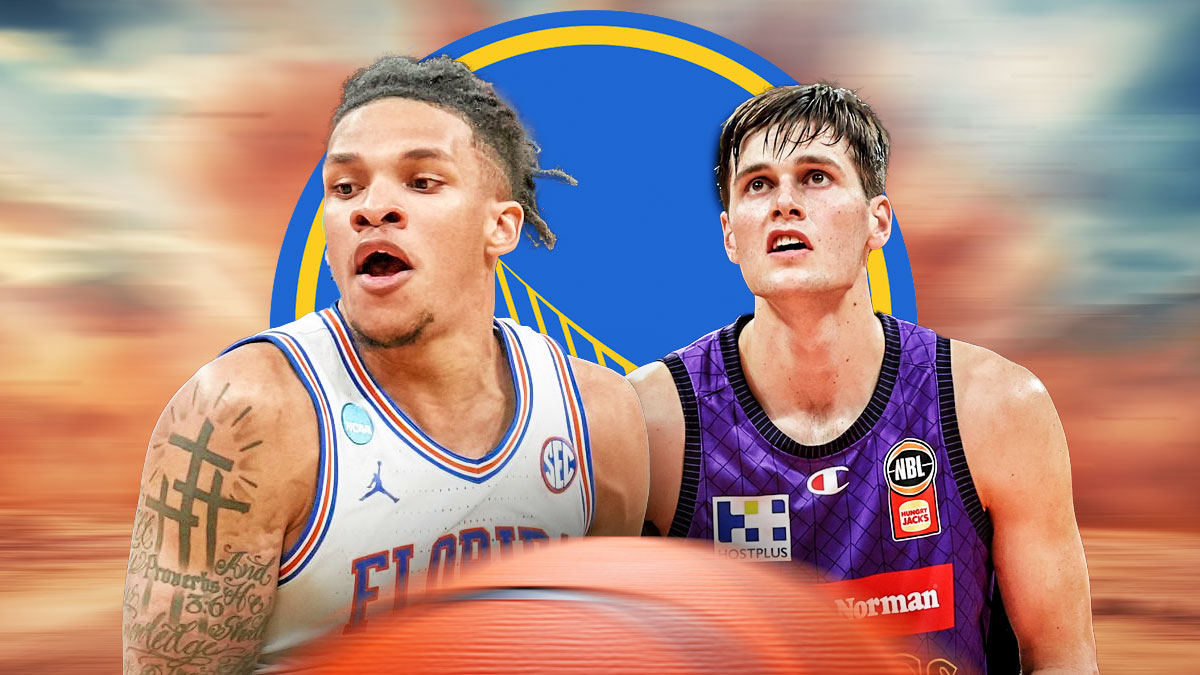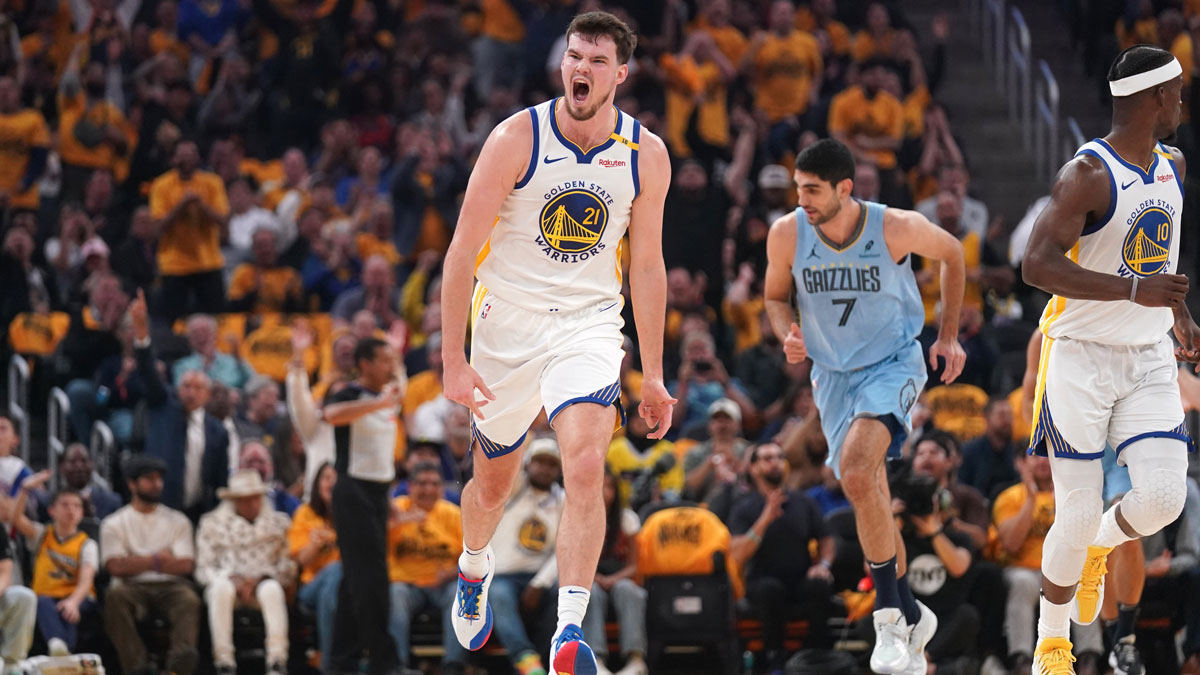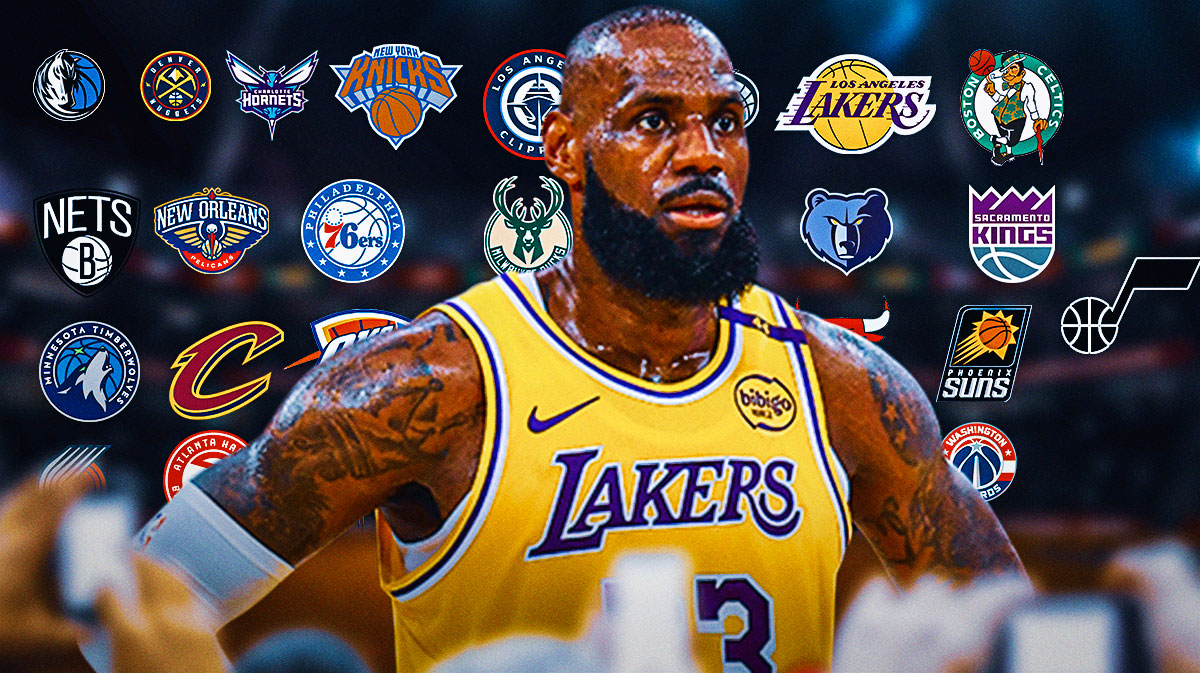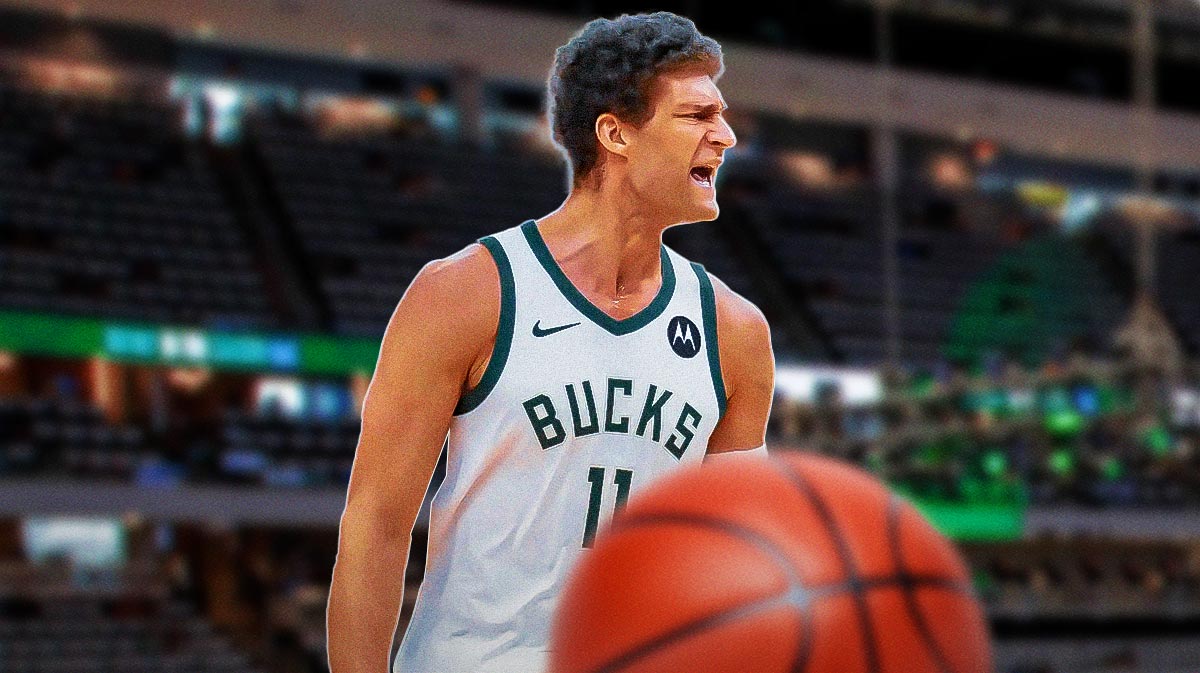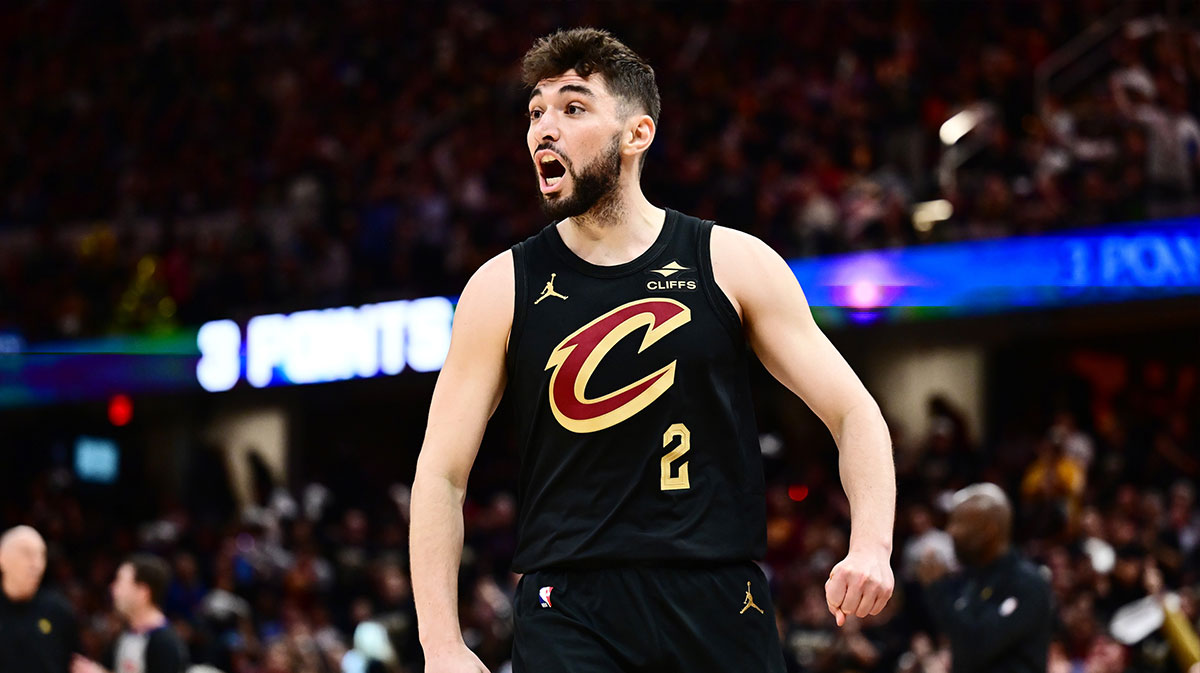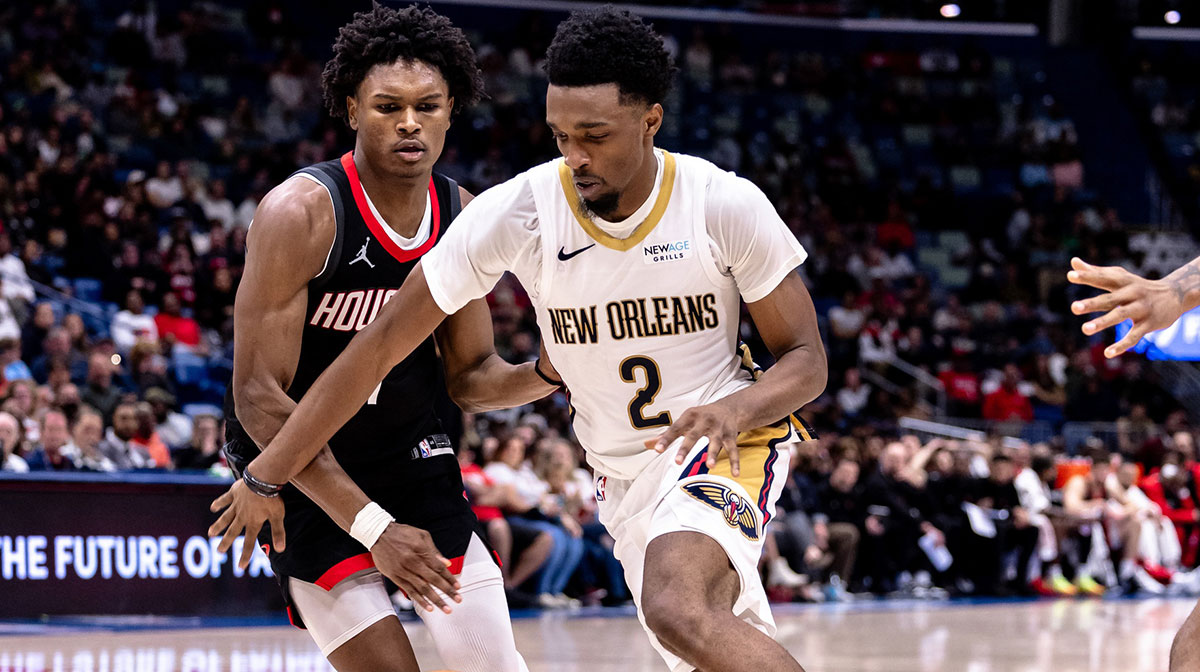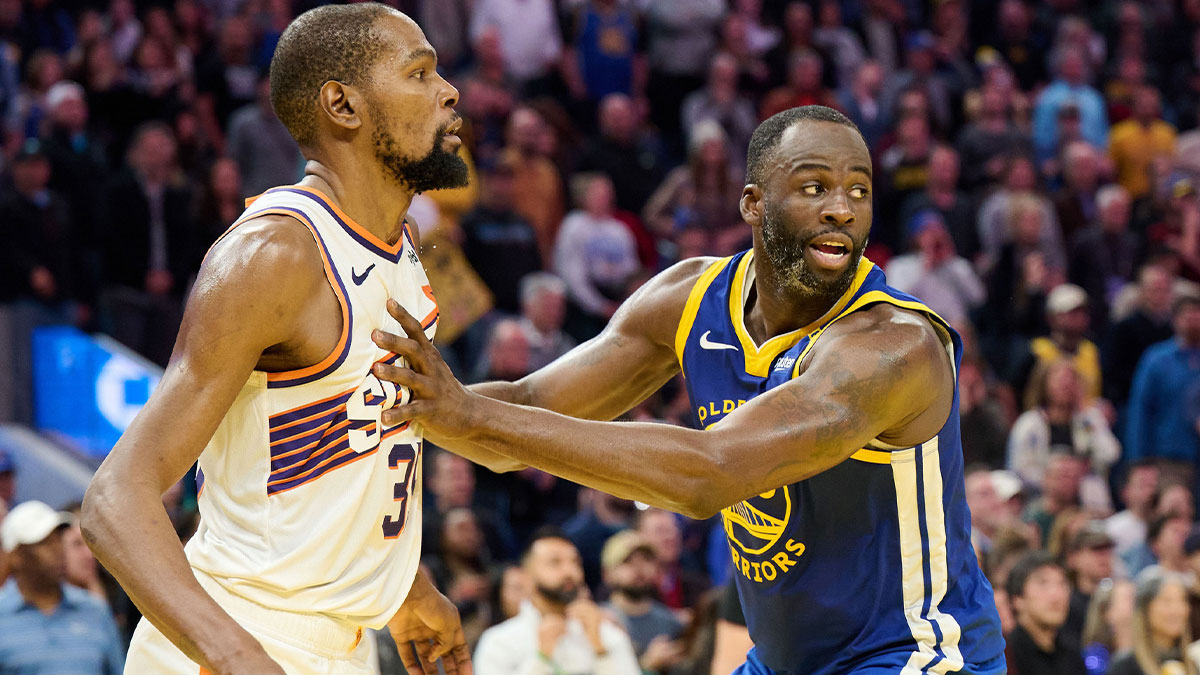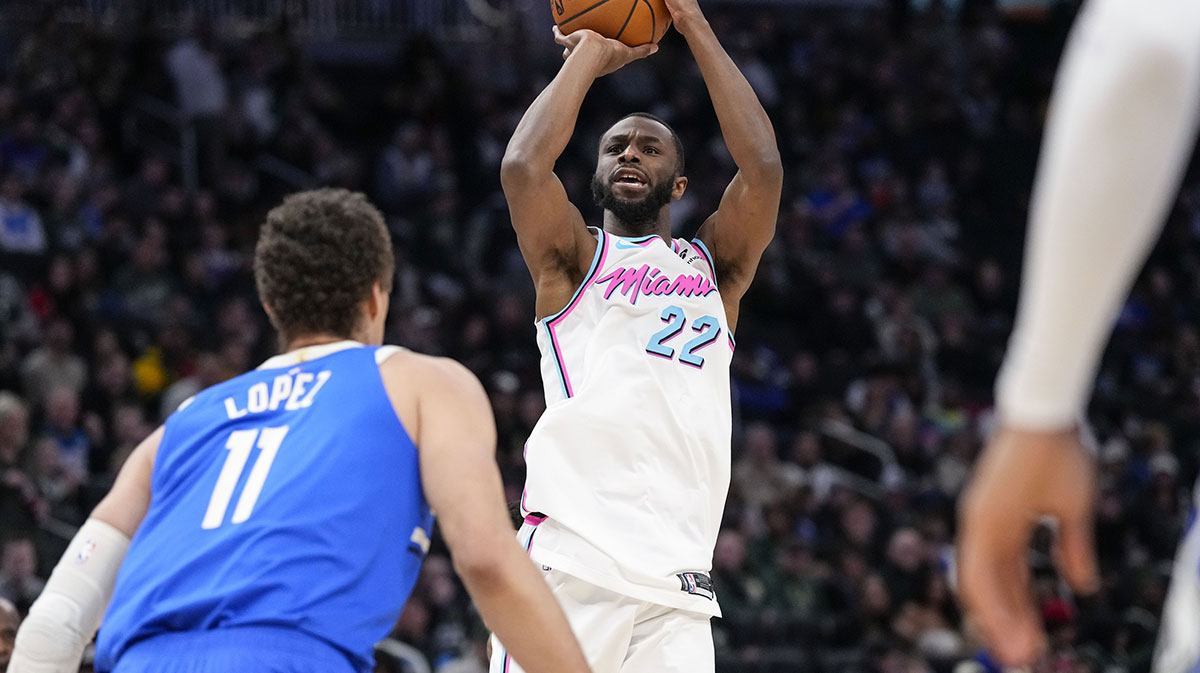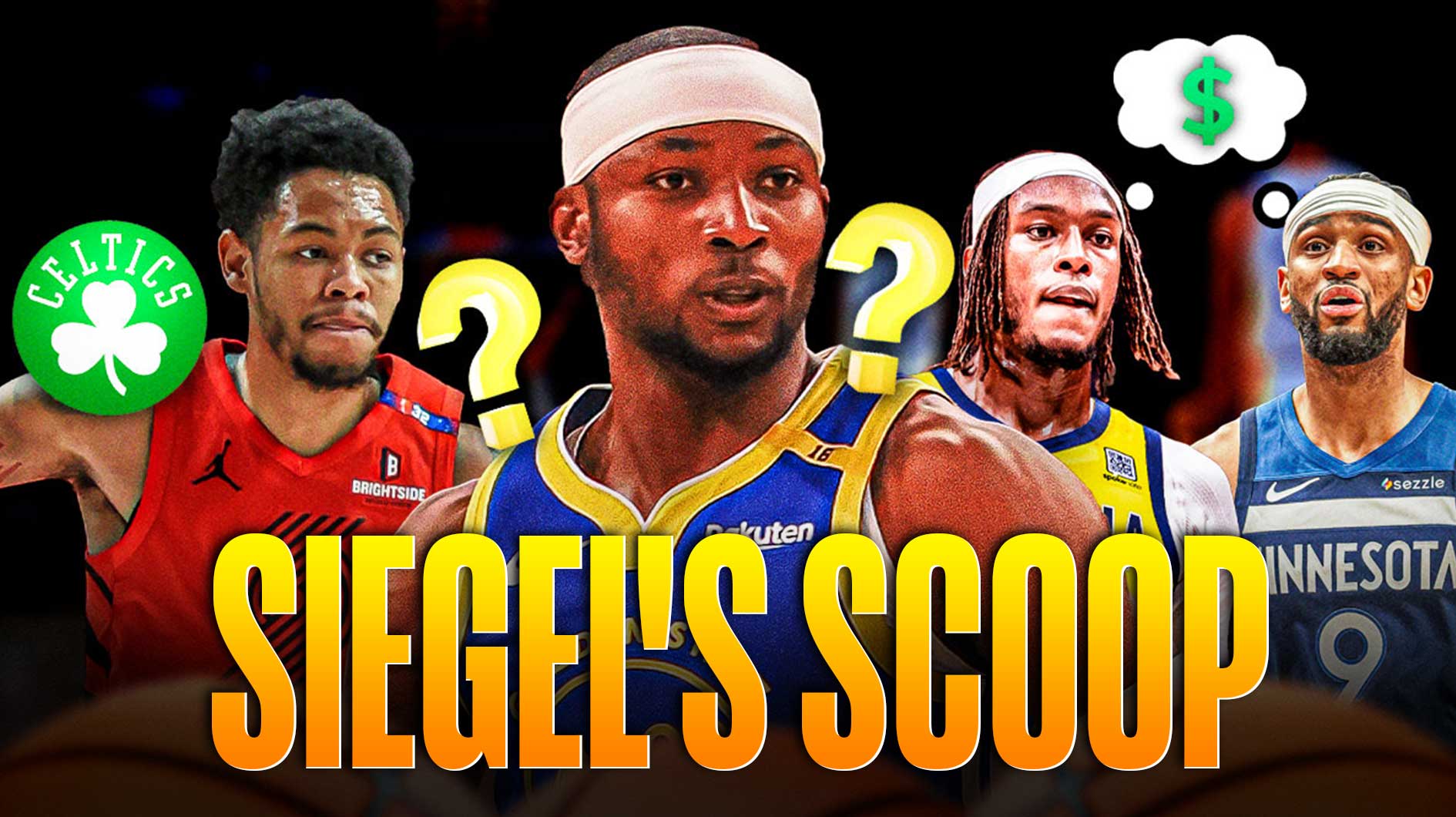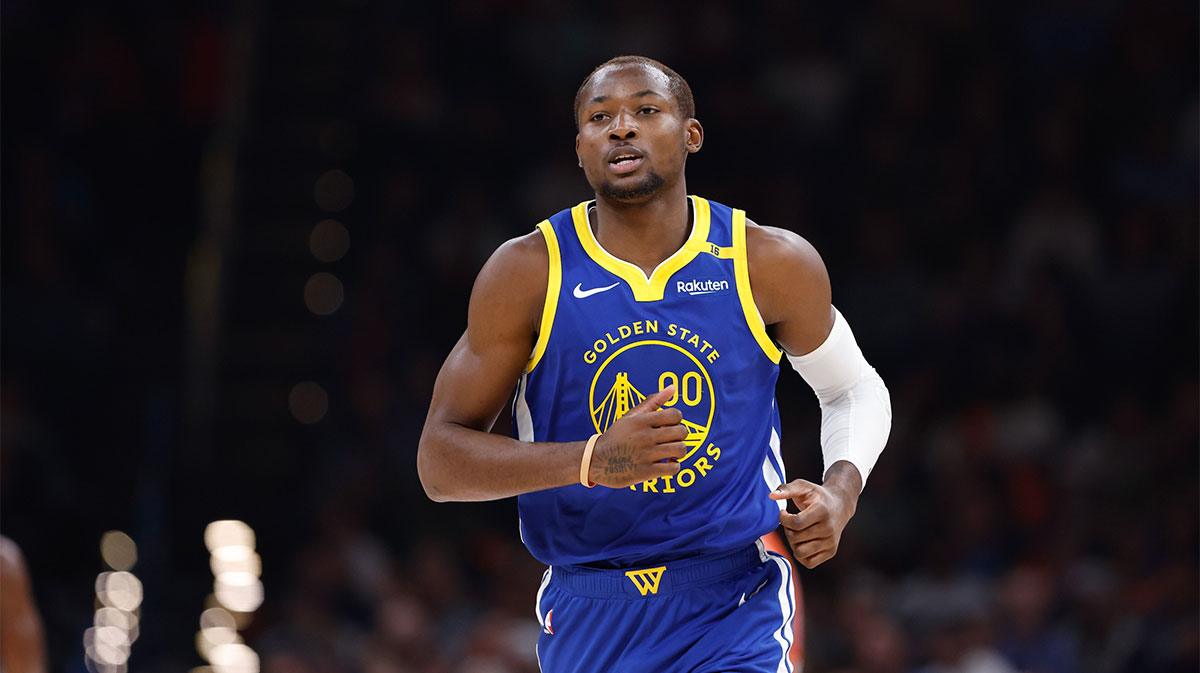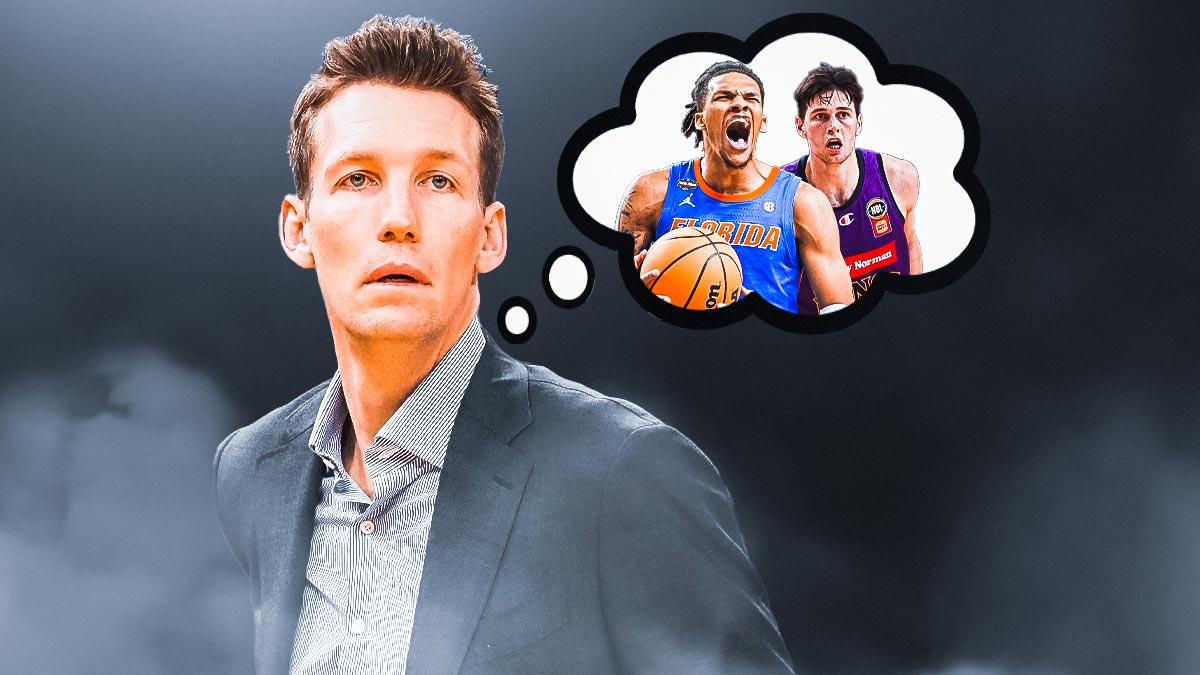This is a strange time in the NBA. Not only will the same two teams square off in the NBA Finals for the fourth consecutive year — a first in American pro sports — but something that feels impossible has emerged as true. The world's best, most terrorizing player seemingly doesn't have a chance in a final best-of-seven.
Seriously, when is the last time that's been the case in sports? The challenging feat of simply getting to the last round of the most prestigious tournament is supposed to mean you have a realistic shot at gold. It's supposed to mean both teams are powerful enough to etch themselves in the history books.
But with this matchup in 2018, most people aren't naive. As bizarre as it may sound, since LeBron James is essentially a giant at 6'8″ and 250 pounds, this is the NBA's closest resemblance of a David versus Goliath tale.
James and the Cavaliers, playing at the level and consistency of a 43-win team, have clawed their way through the Eastern Conference. The reward? Facing the same core from Golden State that rattled off a 16-1 postseason last year and won 58 games this season with their most important player (Stephen Curry) missing 31 due to injury.
After their much-needed trade deadline send-off, Cleveland outscored its opponents by four points per 100 possessions to finish the season. In their 18 playoff games, that has dropped to just 1.2, since they were pushed to seven games by both Indiana and Boston. As for Golden State, the point differential per 100 possessions (net rating) has increased with the arrival of the playoffs. They went from a plus-8 in the injury-riddled season to a plus-10.3 entering these Finals.

In some ways, the pressure has completely been lifted from James. It's the most talented and impactful player to ever step on the court, but with minimal offensive help in terms of shot creation, against the most vigorous and efficient lineup ever assembled. The expectations of a champagne celebration died when Kyrie Irving was dealt to Boston and Isaiah Thomas (the main returning piece) failed to work out.
Regardless of which projection system you study, this is labeled as the most lopsided championship series the NBA has featured. ESPN's Basketball Power Index gives the Warriors a 91 percent chance to win the title, with the second-most likely outcome being a sweep. FiveThirtyEight's system doesn't have it quite as high — since it heavily factors in regular season ratings and ignores prior injuries. It has the Warriors as 77 percent likely to repeat. The opening point spread from Vegas is another indicator. Golden State enters Game 1 on Thursday as 13-point favorites, the highest Finals spread in history for a tied series.
So, why does this series draw any form of excitement?
Why will the fourth installment of this tetralogy near all-time records for television ratings, when the outcome is inevitable?
Why, after all of the griping about Kevin Durant ruining the league, will casual NBA fans care to watch?
Well, for starters, compare it to any horror, drama, or Sci-Fi film. Society always seems to find intrigue in one character having all of the odds stacked against them, battling an infrangible opponent or force, waiting to see what type of miracles they're capable of.
With James lacking the necessary help and trying to navigate past a familiar foe, viewers and the NBA media community still don't mind seeing this fourth rendition. James has spoiled us to such a high degree in the playoffs with his inhuman performances, it makes you think about whether or not he can raise the bar even steeper.

If he was up against an evenly-matched opponent, we would be debating if his postseason run to a title would be the most impressive in history. In over 41 minutes per game, James is averaging 34 points, 9.2 rebounds, and 8.8 assists per game in the playoffs. It's the most assists and second-most points he's ever averaged in the postseason. This is all while shooting 60 percent from two-point range, including 77.7 percent at the rim, and maintaining a 33.0 Player Efficiency Rating. Even when he's completely drained and physically burnt at the end of games, he stays efficient.
Nobody has ever carried a heavier load to the NBA Finals, and now James has done it twice in Cleveland — 11 years apart. This run is just as memorable as 2007, when he lifted the 50-win Cavaliers to the Finals before getting swept by the San Antonio Spurs.
But, here's the thing. Factoring in the eras and ability of the roster to match what the era called for, that 2007 supporting cast was better and more prepared than this 2018 version. In the 2007 Finals, Cleveland lost all four games by a combined margin of 24 points. They weren't blowouts. Now, this current group around LeBron may lead him to a defeat similar to 2014, or worse:
Total point margin for every Finals since 2010:
2010: 24 in 7 games
2011: 14 in 6 games
2012: 20 in 5 games
2013: 5 in 7 games
2014: 70 in 5 games
2015: 43 in 6 games
2016: 4 in 7 games
2017: 34 in 5 games2018: Are we in store for 80+ in 4 games? Maaaaybe 5 games?
— Shane Young (@YoungNBA) May 29, 2018
Another factor that makes this Finals a lot more peculiar than any in recent memory is the newness of the Cavaliers' rotation and strategy versus Golden State. I can't remember a Finals matchup that lacked in reliable film from the two regular season meetings. Both games occurred before the trade deadline, and it was actually quite humorous going back through some of those moments. Out of the 96 total minutes they've played each other, maybe only 5-10 are truly worthy of consideration when preparing for this series.
Dwyane Wade played 55 minutes in two games. He's gone.
Jae Crowder played 50 in two. He's gone.
Isaiah Thomas played 32 in one. He's gone.
Stephen Curry, who bends the Cavaliers' defense more than anyone, missed the first game. He's back.

The regular season meetings should be scrapped here. Cleveland is a vastly different team, but only slightly better from the transactions. Rodney Hood has been nothing but a liability all playoffs, thus he's in Tyronn Lue's doghouse. Jordan Clarkson and Larry Nance provide Cleveland with second-unit depth, but their roles and minutes were greatly diminished in a must-win road Game 7 at Boston. What's going to happen when they step into Oakland, where the stakes are higher and every single game feels like a must-win because of the opponent?
Beyond the fact that James is a human instead of a cyborg, the Cavaliers have a glaring issue.
Their best lineup during the playoffs, which is also their most-used (usually a positive sign), involves two defensive handicaps that Golden State will hunt and shred. The lineup of James, George Hill, J.R. Smith, Kyle Korver, and Kevin Love at center has played 135 minutes during the postseason. It has a 119.9 offensive rating, which would be the most efficient offense in the league by a mile. It has a defensive rating of 108.6 — typically terrible, but the severity is lessened when you're greatly outscoring teams anyway.
With a net rating of plus-11.3 and a 65 percent True Shooting percentage, that lineup of LeBron and four shooters should stay on the floor as long as possible, right? Against most teams, yes. But what killed Cleveland this year is that either Finals opponent — Golden State or Houston — was far too deadly to leave both Korver and Love on the floor.
Most of the time, you can stomach having one negative defender on the floor against a great team. Even then, it's hard to feel comfortable (see: Houston with Ryan Anderson in Game 7 vs. Golden State). However, when you have two out there at the same time, it becomes a circus. The Warriors will clown those lineups every chance they get, whether it's using Korver's man as a screener in Kevin Durant pick-and-rolls, or Curry doing the same with Love after last year's Finals proved to be a disaster.

Multiple suggestions have been thrown around for Cleveland's starters in Game 1. With Love still being in the concussion protocol, the best bet for the Cavaliers is to start James, Hill, Smith, Jeff Green, and Tristan Thompson. That puts LeBron with two shooters, a wing in Green that Golden State will gladly let fire away, and a traditional center to keep possessions alive and free up space with his dominant screening.
A few things about this lineup:
- If this is your best option for a Finals game, it literally causes me to look at the computer screen like I tasted something sour.
- During the playoffs, Green has played 321 minutes with James on the court. He has shot 16-of-40 (40 percent) from three-point range in those minutes. When Green plays without James, he is just 2-of-16 (12.5 percent). The premise of the Warriors being happy with Green taking shots is prefaced with making life difficult on Cleveland's initial actions, and guys taking contested looks. Not letting LeBron deep into the paint, drawing help, and opening up his shooters.
- Thompson isn't as mobile as he used to be on switches. Last year in the Finals, Durant had his fair share of moments when he got Thompson matched up with him on the perimeter. We know who won that Texas Longhorn battle. In that 2017 series, the Cavaliers had a defensive rating of 127.1 when Thompson played (132 minutes) — the worst on the team. It improved to just 105.2 when he sat on the bench (108 minutes).
- Curry was comfortable last series with Clint Capela being switched out on him. He surely won't be rattled by Thompson.
- If Love misses Game 1, this is still the only thing you can do lineup-wise. You have to give yourself chances at offensive rebounds, especially with Kevon Looney starting alongside Draymond Green for Golden State.
- In this scenario, George Hill starts out on Curry, J.R. Smith on Klay Thompson, Jeff Green on Kevin Durant, LeBron on Draymond Green, and Tristan Thompson on Looney.
With how poorly Draymond is shooting in the playoffs, you can fully expect LeBron to use that matchup as his defensive strategy for playing “free safety.” Green often finds himself on the perimeter surveying the floor, waiting for shooters to spring open. James will be able to hang back, and provide help defense to necessary spots on the floor.
Why? Perhaps because Green is providing nothing from outside the restricted area right now:
Outside of the restricted area (4 feet), Draymond Green is:
2/18 inside the paint
6/16 from mid-range
2/10 on corner 3’s
16/55 on all other 3’s26/99 (26.3%) total on shots not at the rim. Just hilarious. Rockets didn’t guard him out there, and the Cavs won’t either
— Shane Young (@YoungNBA) May 29, 2018
Until he starts knocking down shots consistently, similar to Game 7 of the 2016 Finals, LeBron shouldn't budge from this game plan. He's always in the back of the Warriors' minds when he's roaming defensively.
The huge elephant in the room, though, is what exactly will Cleveland do offensively when its King needs to rest?
James has only rested for 126 minutes during this playoff run. That's seven minutes per game on the bench … against East teams. And they barely made it through the door to the Finals. It almost feels like he has to play 45-48 every single game for them to have a puncher's chance. It's just asinine.
In last year's Finals versus Golden State, James managed to only be outscored by seven points during his minutes on the floor. When he went to the bench, they were flooded by 27 points in his 28 minutes of rest. Again, that was with Irving, a scoring point guard that could create his own shots at will. The only player that thinks he can do that on this roster is Clarkson, and the Warriors will invite any form of Clarkson mid-range or three-point pull-ups.

Although Golden State is a super team for the ages, the formula to knocking them off isn't impossible to find. It's just easier said than done.
The Rockets found what worked, but didn't have the shot-making or the healthy personnel to finish the job. They also had the luxury of playing the Warriors without Andre Iguodala, though, which Cleveland will too for the time being.
You have to win the possession battle by a decent enough margin, giving your team multiple cracks at scoring on them. But at the same time, you have to control the pace and keep the game at a snail's pace compared to what the Warriors typically prefer.
In the Rockets' pivotal Game 5 win in the West Finals, they held Golden State to just 72 shot attempts. For comparison, they averaged over 83 for the entire series. It was just in that game, Houston made sure to get more shooting possessions, which stems from offensive rebounds and protection of the ball (turnovers).
Both of the Rockets' wins in the middle of that series consisted of keeping the pace under 94 team possessions, which include shots and turnovers. Isolation ball will tend to slow it down, and it's exactly what LeBron's best method to competitiveness looks like in this series.
In the Warriors' 12 wins this postseason, they average just 12.5 turnovers per game, with a 2.28 assist-to-turnover ratio. In their five losses, they coughed up the ball 15.8 times per game, with a 1.18 ratio.
“We always talk about the possession game,” Kerr said after Game 7. “If we can have the same number of possessions as our opponent, our shot-making is going to take over.”
The blueprint is there. It's laid out in the locker room. What makes this fourth edition the biggest uphill climb, however, is Cleveland's lack of a second architect.
It has 2015 written all over it in that sense. Except without good, scrappy, and relentless enough defenders to make Kerr's troops break a sweat.
Warriors in 4.
Finals MVP: Stephen Curry
*All stats via NBA.com*

